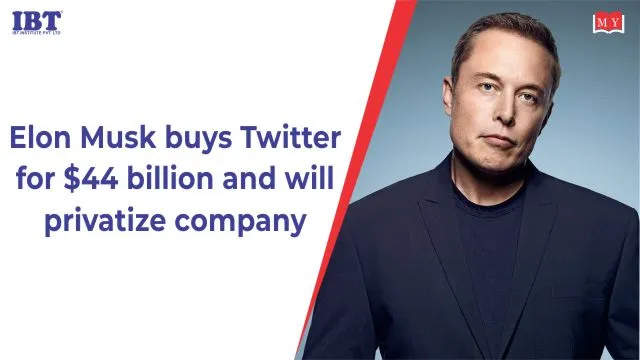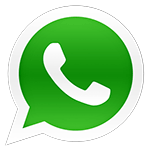
Elon Musk buys Twitter for $44 billion and will privatize company
Elon Musk and Twitter Inc. reached an agreement for the world’s richest man to buy the social networking platform for $44 billion, resolving the pressing question of whether the company’s board would consent to the leveraged buyout deal.
Musk, 50, has outlined the $13 billion in bank financing secured by the social-media company and the $12.5 billion backed by a pledge of some of his $170 billion Tesla Inc. stake. But he’s been short on details about how he’ll fund the remainder.
There’s little doubt he can come up with the money. Musk is the world’s richest person, with a fortune of $257 billion, according to the Bloomberg Billionaires Index. However, he has just about $3 billion in cash and somewhat liquid assets, according to Bloomberg estimates.
That leaves him with the following options:
Other Investors
One path for Musk is finding like-minded investors who buy into his vision for Twitter to join him in his purchase. That would mean some of the equity portions comes from new or existing shareholders.
He’s already hinted that such a strategy may be in the cards. After his initial offer to buy Twitter, Musk said at a TED event that “the intent is to retain as many shareholders as is allowed by the law.”
Private U.S. companies are generally limited to fewer than 2,000 shareholders, meaning most retail investors won’t continue to own Twitter if the buyout closes.
But larger shareholders, like Twitter founder Jack Dorsey, might choose to keep their holdings in the company if they believe in Musk’s vision. Dorsey’s stake is worth almost $1 billion. Bloomberg News reported Monday that Musk is lining up equity partners and continuing talks with other potential co-investors.
On the other hand, Musk’s statement at the TED event that he “doesn’t care about the economics” could scare off some potential investors.
Selling Stakes
Even if Musk can’t round up many other equity investors, he has the financial firepower to go at it mostly alone, thanks to the crown jewel of his enormous fortune: His stake in Tesla.
After pledging shares to cover his $12.5 billion margin loan, Musk will still own unpledged shares in the car company worth about $21.6 billion, based on Tesla’s closing price. After taxes, that sale would come close to covering his full commitment, though a lot will depend on the price he gets for the stock.
That strategy comes with its own set of risks. For one, concerns about Musk needing to sell some of his shares may already be weighing on the electric carmaker’s stock price. It’s down about 8% since the beginning of the month.
Selling his stakes in his private companies, SpaceX and The Boring Company, is possible, but unlikely because they’re so much less liquid.
Cash, Crypto
The other possibility: Musk is even richer than calculated by the Bloomberg Billionaires Index.
Musk’s cash estimate is based on filings related to publicly traded shares and news reports, but much of the information on his private finances is limited. If his portfolio of investments has outperformed the market, for instance, Musk could be wealthier than the Bloomberg estimate and he might not need new sources of funding to cover the $21 billion.
Musk said in July he owned Bitcoin, Ether, and Dogecoin. While it’s not clear how much he holds or for how long he’s owned them, the first two cryptocurrencies have gained about 720% and 2,600%, respectively, since March 2020, a much steeper rally than the roughly 90% advance in the S&P 500 Index. Dogecoin, meanwhile, surged almost 30% on Monday after Musk agreed to buy Twitter.
About Musk
Elon Musk Early Life:
- Musk was born in Canada to a Canadian mother and a South African father.
- He showed an early interest in computers and business.
- He produced a video game at the age of 12 and sold it to a computer magazine.
- Musk left South Africa in 1988 after getting a Canadian passport because he refused to support apartheid through compulsory military duty and wanted to pursue the higher economic prospects offered in the United States.
Elon Musk Business:
- Elon Reeve Musk FRS is a billionaire businessman, entrepreneur, and investor.
- He is the co-founder of Neuralink and OpenAI, as well as the founder, CEO, and Chief Engineer of SpaceX.
- He is also an early-stage investor, CEO, and Product Architect of Tesla, Inc., and the founder of The Boring Company.
Elon Musk Education:
- Musk began his studies at Queen’s University in Kingston, Ontario, before moving to the University of Pennsylvania in Philadelphia in 1992 and completing bachelor’s degrees in physics and economics in 1997.
- He enrolled in physics graduate school at Stanford University in California, but he dropped out after only two days, believing that the Internet had far more potential to revolutionise society than physics.
- Zip2, a startup that provides maps and business directories to online newspapers, was started by him in 1995.
- After Zip2 was purchased by computer manufacturer Company for $307 million in 1999, Musk launched X.com, which later became PayPal, an online financial services company that specialised in online money transfers.
- PayPal was purchased for $1.5 billion in 2002 by the online auction site eBay.
Elon Musk Philosophy:
- Musk has long believed that mankind must evolve into a multi planet species in order to survive. He was, however, concerned with the high cost of rocket launchers.
SpaceX:
- He founded Space Exploration Technologies (SpaceX) in 2002 with the goal of making more economical rockets.
- The Falcon 1 (first launched in 2006) and the bigger Falcon 9 (first launched in 2010) were the company’s first two rockets, both of which were planned to be substantially less expensive than rival rockets.
- The Falcon Heavy (first launched in 2018) was designed to carry 117,000 pounds (53,000 kg) to orbit, roughly twice as much as its closest competitor, the Boeing Company’s Delta IV Heavy, at a third of the price.
- The Super Heavy–Starship is the successor to the Falcon 9 and Falcon Heavy, according to SpaceX.
Tesla
- Musk has long been fascinated by the potential of electric vehicles, and in 2004 he became one of the primary investors in Tesla Motors (later renamed Tesla), an electric vehicle startup created by entrepreneurs Martin Eberhard and Marc Tarpenning.
- Tesla debuted its first automobile, the Roadster, in 2006, with a range of 245 miles (394 kilometres) on a single charge.
- It was a sports car that could travel from 0 to 60 miles per hour (97 kilometres per hour) in less than four seconds, unlike most earlier electric vehicles, which Musk considered were stodgy and uninspiring.
- The company’s Initial public offering (IPO) in 2010 raised $226 million. Tesla released the Model S sedan two years later, which was praised by automotive critics for its performance and design. Now Tesla’s release positioned it as one of the few successful independent automakers and a pioneer in the electric car market.
 4.5/5
4.5/5








